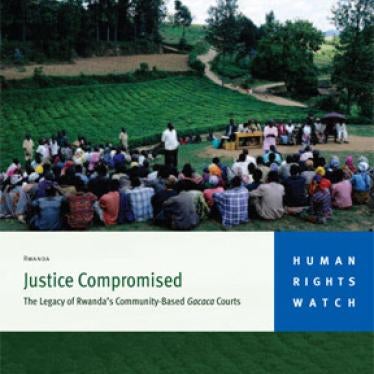(Bangkok) – Burma’s human rights situation remained poor in 2012, despite some noteworthy actions by the government to adopt rights-respecting reforms, Human Rights Watch said in its World Report 2013 released today.
In its 665-page report, Human Rights Watch assessed progress on human rights during the past year in more than 90 countries, including an analysis of the aftermath of the Arab Spring.
Over the past year, the Burmese government released nearly 400 political prisoners, relaxed media censorship, and permitted opposition leader Aung San Suu Kyi and her National League for Democracy party to assume the 43 parliamentary seats it won in April’s by-election. But the government failed to hold security forces accountable for serious abuses against civilians during the armed conflict in Kachin State and sectarian violence targeting Rohingya Muslims in Arakan State, obstructed humanitarian aid to tens of thousands of displaced people in both crisis areas, and cracked down on peaceful demonstrators in Rangoon and elsewhere, Human Rights Watch said.
“Burma’s reforms over the past year are hindered, not helped, by international oversell and hasty praise in the face of continued serious human rights abuses,” said Phil Robertson, deputy Asia director at Human Rights Watch. “No one expects that a rights-respecting democracy will arrive overnight, but Burma is still failing basic rights tests on its remaining political prisoners, blocked humanitarian aid, and ensuring accountability for war crimes.”
In June, deadly sectarian violence erupted in Arakan State between ethnic Arakanese Buddhists and ethnic Rohingya Muslims, a long-persecuted minority of approximately 800,000 to one million people. The Rohingya are systematically denied citizenship by the Burmese government, making them stateless. State security forces initially failed to protect either community, resulting in some 100,000 displaced, and then increasingly targeted Rohingya in killings, beatings, and mass arrests, while obstructing humanitarian access to Rohingya areas and to camps of displaced Rohingya around the Arakan State capital, Sittwe.
In October, violence and abuses erupted again in 9 of Arakan State’s 17 townships, including in several townships that did not experience violence in June, resulting in an unknown number of deaths and injuries, the razing of entire Muslim villages, and the displacement of an additional 35,000 Muslims. Many of the displaced fled to areas surrounding Sittwe, where they also experienced abuses, such as beatings by state security forces.
Armed conflict between the Burmese government and the Kachin Independence Army (KIA) continued in Kachin State in the north – including government airstrikes in late December – where an estimated 90,000 civilians remain displaced. The government continues to deny humanitarian aid to the displaced Kachin civilians in KIA territory, and in August, more than 4,000 Kachin refugees in Yunnan province, China, were forced back to the conflict zone in Kachin State, in violation of international law, putting further pressure on the isolated displaced person camps in Kachin State.
In the conflict areas in Kachin and Shan States, the Burmese military carried out extrajudicial killings, sexual violence, torture, forced labor, and deliberate attacks on civilian areas, all which continue with impunity. Ceasefire agreements in the ethnic conflict areas of eastern Burma remain tenuous, and an estimated 400,000 people remain displaced in eastern Burma due to decades of conflict.
In September, 13 activists in Rangoon faced charges for failing to get permission for a demonstration held peacefully to oppose the armed conflict in Kachin State. Nine have been charged in multiple courts and face several years in prison if convicted. The government cracked down on other peaceful protests, including a violent crackdown on demonstrators against a military and Chinese-run copper mine in Sagaing Division, which left more than 20 protesters, including Buddhist monks, severely burned.
Laws that have been used to imprison peaceful activists, lawyers, and journalists remain on the books, including, among others, the Unlawful Associations Act, the Electronics Act, the State Protection Act, and the Emergency Provisions Act. While Burmese President Thein Sein released an estimated 400 political prisoners in 2012 in general amnesties, as many as several hundred more political prisoners remain in prison. Freed political prisoners face restrictions on travel and education, and lack adequate psychosocial support.
Despite serious ongoing abuses, foreign governments – including the United States and the United Kingdom– continued their expressions of optimism about political reforms while prematurely easing or lifting political and economic sanctions against Burma, Human Rights Watch said. Following a historic visit to the country by US President Barack Obama in November, Thein Sein committed to inviting the United Nations Office of the High Commissioner for Human Rights to establish a presence in the country, and to establishing an independent mechanism to focus on remaining political prisoners, among other commitments that have yet to materialize.
“The US, UK, and other influential governments should hold Burma to the human rights commitments it made during last year’s well-publicized international visits,” Robertson said. “Systematically releasing the remaining political prisoners and opening a UN rights office are key benchmarks. Foreign governments should recognize that Burma’s history shows that a tough response to rights abuses doesn’t derail reform, but promotes it.”






